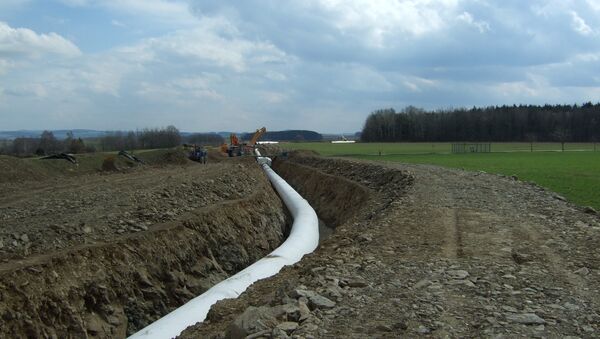WARSAW (Sputnik) — The Opal pipeline connects Europe’s gas transportation network with the Nord Stream pipeline, which was built in 2010 to supply Russian gas along a Baltic Sea pipeline to northern Germany. In October, the European Commission allowed Bundesnetzagentur to change its rules and to expand Gazprom's 50 percent access to the Opal gas pipeline by additional 40 percent, keeping the last 10 percent as a reserve for the third countries, which could be extended to 15-20 percent in case of high demand.
"Due to unprecedented steps on the part of the German National Regulatory Authority (NRA) Bundesnetzagentur and the operator of the OPAL gas pipeline, on December 15, 2016 PGNiG Polish Oil and Gas Company (PGNiG SA) has brought legal action before a German court with respect to the agreement between Bundesnetzagentur, Gazprom, Gazprom Export, and OPAL Gastransport GmbH on the exemption of Gazprom from the principle of third party access to the capacity of the OPAL gas pipeline," the statement read.
The document also confirmed that Polish government had filed a complaint with the European Court of Justice regarding the European Commission's decision.
"Neither our EU nor German partners are playing fair. Bundesnetzagentur seems to be abusing its powers," Piotr Wozniak, the CEO of PGNiG, said, according to the statement.
Wozniak also said that the actions of Germany threatened the stability of gas supply to Poland and Central Europe.
Never miss a story again — sign up to our Telegram channel and we'll keep you up to speed!

